Raising chickens for eggs can be an incredibly rewarding experience. Not only do chickens provide nutritious eggs, but they also provide companionship and can be a great source of entertainment. Learning the basics of chicken husbandry, such as how chicken lay eggs, can help you raise chickens for maximum egg production. This article will provide you with an overview of how to raise chickens for maximum egg production.
Types of Chickens that Lay Eggs
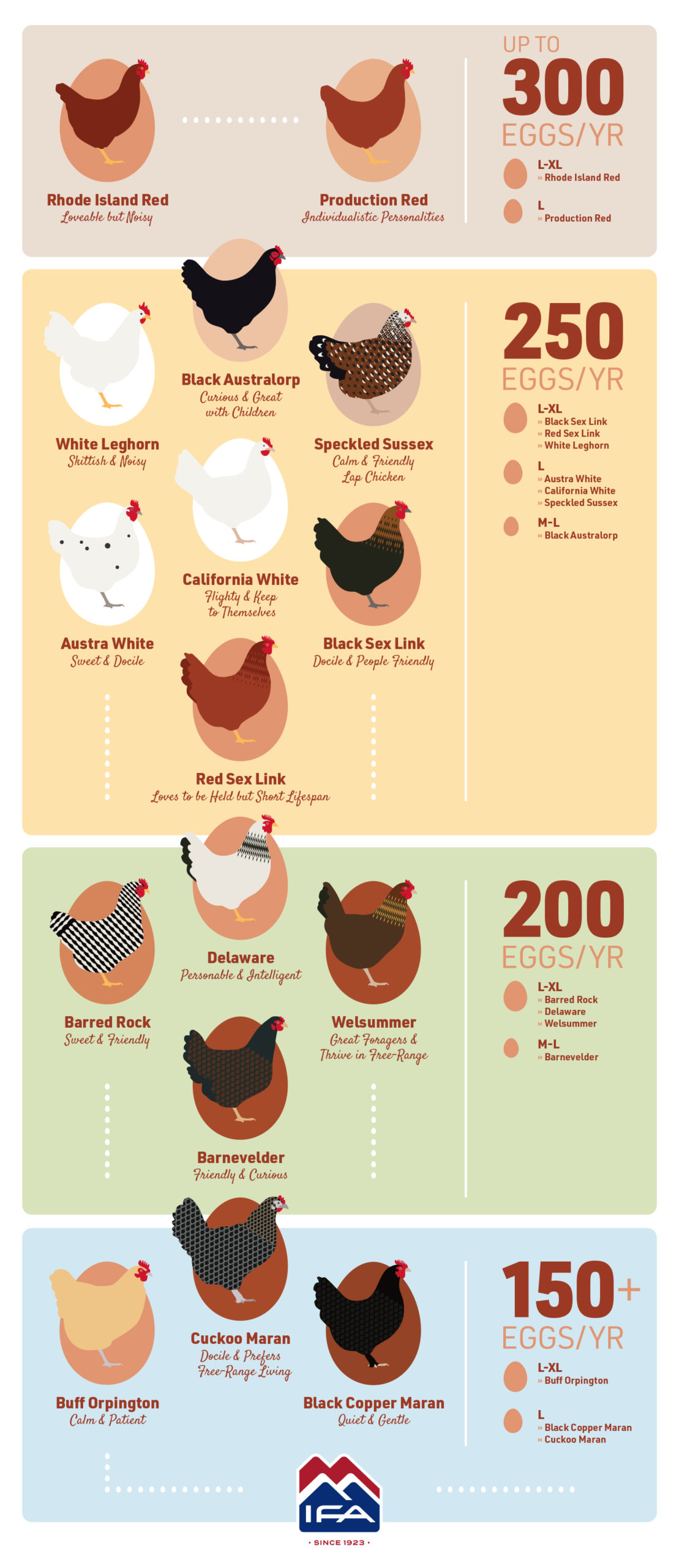
- White Leghorn: These chickens are the most popular egg-layers and are known for their high egg production. They produce around 280-300 eggs per year.
- Rhode Island Red: These chickens are one of the most popular breeds for laying eggs. They are known for their hardiness and high egg production, producing around 250-280 eggs per year.
- Australorp: The Australorp is a breed of chicken that is known for its large size and high egg production. They lay around 250-280 eggs per year.
- Plymouth Rock: This breed is known for its hardiness and its ability to produce around 200-280 eggs per year. They are well adapted to cold temperatures.
- Ameraucana: This breed of chicken is known for its colorful eggs and its ability to lay around 200-280 eggs per year.
- Orpington: Orpingtons are a dual-purpose breed of chicken, known for their hardiness and their ability to lay around 180-220 eggs per year.
Apart from the above-mentioned breeds, there are other types that lay eggs, such as the Sussex, the Marans, the Welsummer, and the Brahma. All these breeds lay eggs at different rates, but in general, they can lay anywhere from 150-280 eggs per year. To ensure maximum egg production from a chicken, proper care and feeding are essential. This includes providing a balanced diet and ensuring that the chickens have enough space to roam and forage. Additionally, providing a clean and comfortable environment will help ensure that the chickens are healthy and are able to lay eggs regularly. Finally, understanding how a chicken lays an egg is important for managing a healthy flock.
Understanding the Egg Laying Process
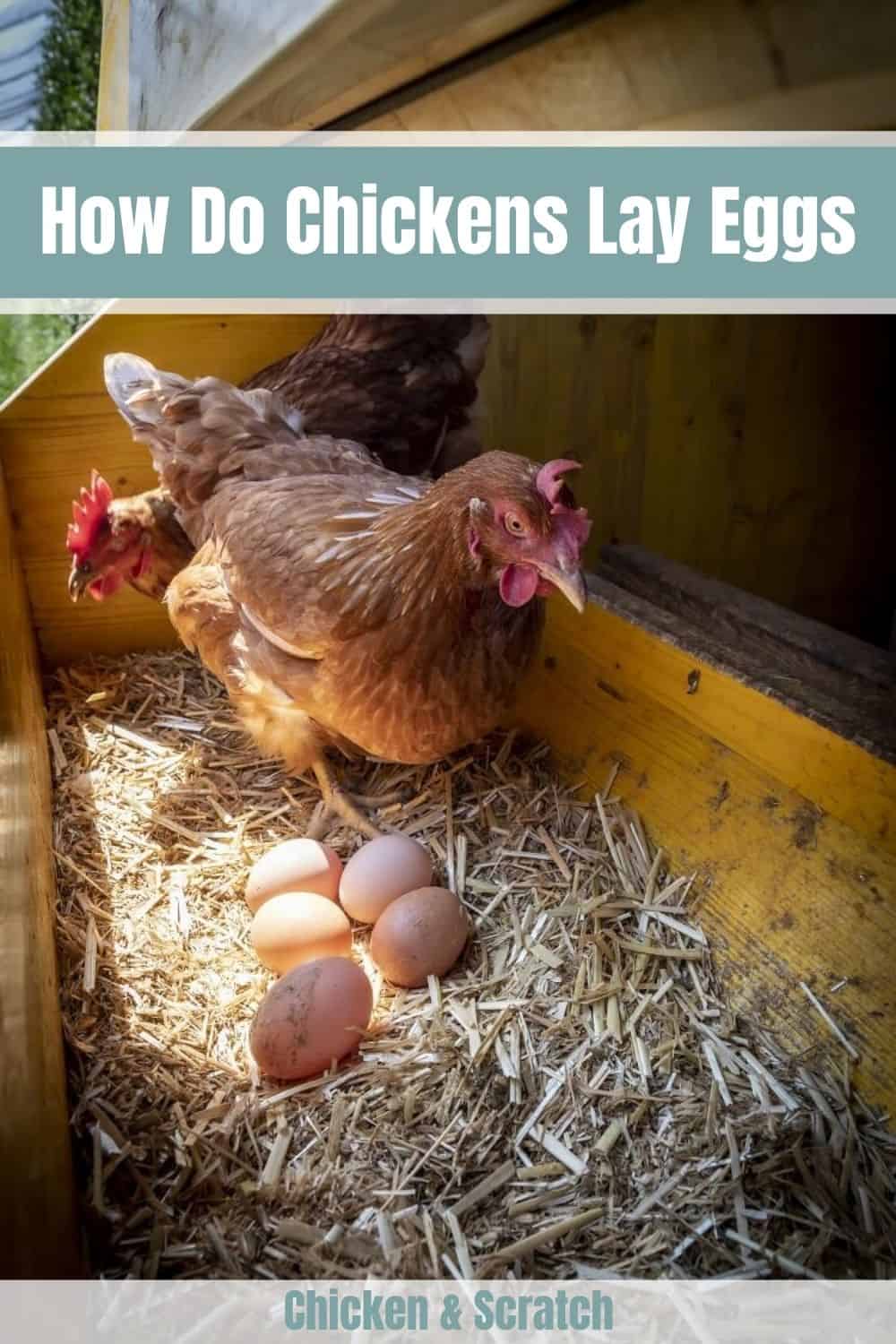
- Hormones: Laying eggs is regulated by hormones. The maturation of an egg is triggered by a rise in the levels of a hormone called estradiol. This hormone is secreted by the hen’s ovaries in order to stimulate egg production.
- Oviposition: Oviposition is the process of laying eggs. It starts with the hen selecting a suitable nesting area and then she will secrete an egg from her oviduct, which is a tube that connects the ovary to the outside of the body. The egg is then covered in a protective coating and she will lay it in the nest.
- Egg Maturation: Once the egg is laid, the hen will begin to incubate it. Incubation is the process of keeping the egg warm so that the embryo inside can develop. This process can take up to 21 days, depending on the breed of the hen.
- Fertility: Not all eggs that are laid will be fertile. Fertile eggs will contain a yolk and a white, while infertile eggs will only have a yolk. If the egg is fertilized, the embryo will develop and will eventually hatch into a chick.
Understanding how chickens lay eggs is an important part of raising chickens for maximum egg production. By understanding the hormones, oviposition, egg maturation, and fertility involved in the egg laying process, you can ensure that you get the most out of your chickens.
Feeding and Nutrition for Maximum Egg Production
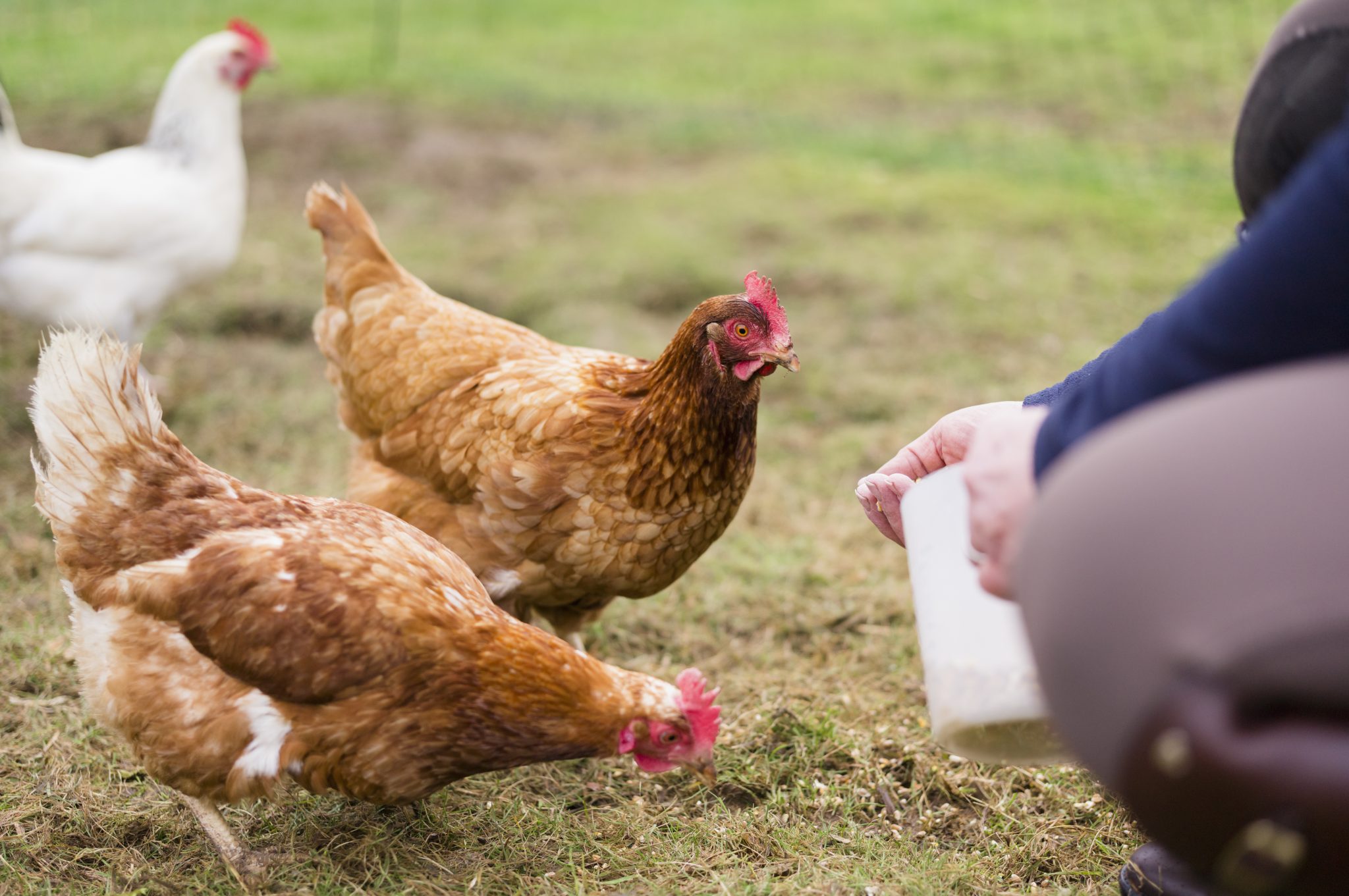
- Provide a Balanced Diet – Chickens need a balanced diet of protein, carbohydrates, vitamins, minerals and other essential nutrients to ensure they are healthy and produce quality eggs. A good option is to provide a commercial poultry feed mix that contains the necessary nutrients.
- Calcium – Calcium is essential for strong egg shells and can be provided in a poultry feed mix or as a supplement.
- Grit – Grit helps chickens digest their food and can be provided in a poultry feed mix or as a supplement.
- Fruits & Vegetables – Fruits and vegetables provide chickens with additional vitamins and minerals and can be a great way to supplement their diet.
- Water – Water should be provided to chickens at all times.
By providing a balanced diet, supplementing with calcium and grit, and offering fruits and vegetables, you can ensure your chickens are receiving the nutrition they need to lay healthy, quality eggs and reach their maximum egg production potential.
The Role of Light for Egg Laying
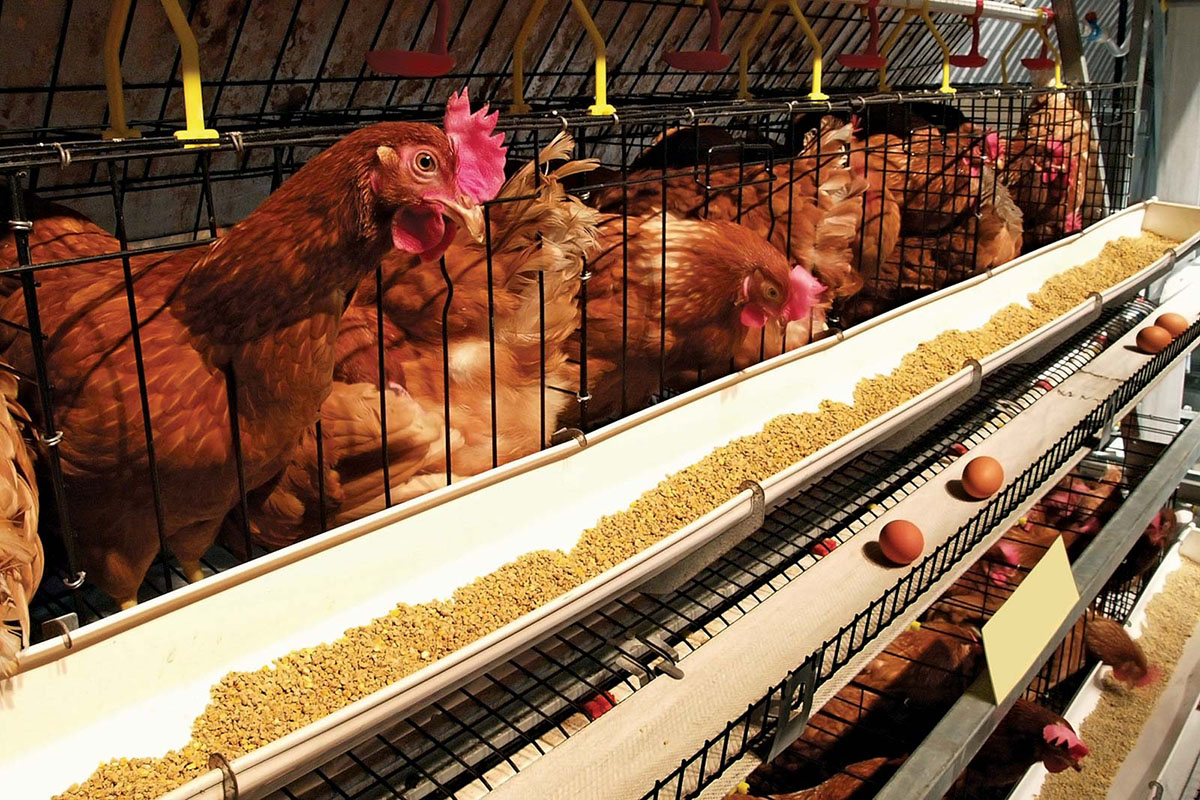
Light plays an important role in regulating egg production in chickens. Chickens are sensitive to the length of daylight and require a certain amount of light to produce eggs. The period of daylight must be at least 14 hours per day, with the best results achieved with 16 to 18 hours of light. In addition to the amount of light, the quality of the light also affects egg production. Natural light is best, but artificial light can also be used. Artificial lighting should be used to ensure that chickens have a consistent amount of light each day.
In the absence of light, hens will stop laying eggs. During the winter months, when the days are shorter, egg production will decrease. To ensure optimal egg production, supplemental lighting may be necessary. This can be accomplished by using a timer to turn on artificial lights for an extra hour or two in the morning and evening. This will simulate the longer days of summer and encourage hens to lay eggs.
In addition to affecting egg production, light can also affect the size of the eggs. Chickens exposed to light for more than 18 hours per day will produce smaller eggs. For this reason, it is important to ensure that your chickens are not exposed to too much light each day.
By providing the right amount and quality of light, you can ensure that your chickens lay eggs consistently and produce eggs of a good size. This is an important part of successful chicken husbandry and understanding how do hens lay eggs.
Maintaining Optimal Health for Egg Laying
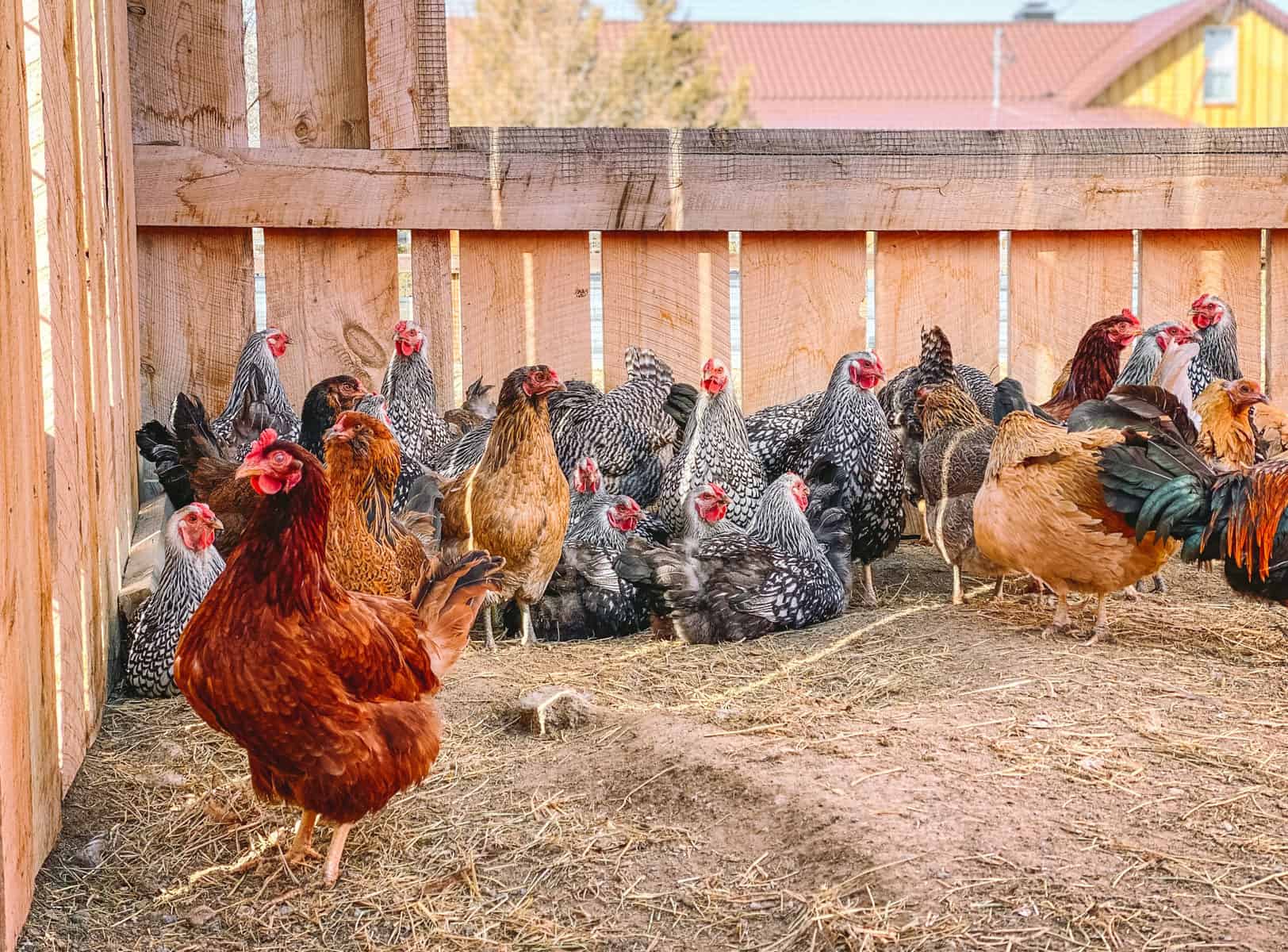
It is essential to maintain optimal health for chickens to lay eggs. A few factors that contribute to a chicken’s health and egg production include:
- Nutrition: A well-balanced diet including proteins, carbohydrates, fats, vitamins, and minerals is essential for chickens to produce eggs. A diet lacking in essential nutrients can lead to decreased egg production.
- Environment: Chickens need a safe, clean, and comfortable environment to produce eggs. This includes a dry area with adequate ventilation, protection from predators, and enough space to move around.
- Genetics: The breed of chicken can also affect egg production. Some breeds are bred specifically for egg production, while others are bred for other purposes such as meat production.
- Age: Chickens reach their peak egg-laying age at about 18 months old. After this, egg production will typically begin to decline.
To ensure optimal health for egg production, chickens should be provided with a balanced diet, a safe and clean environment, and the appropriate genetics. Additionally, it is important to monitor the age of the chickens to ensure that they are not past their peak egg-laying age. Proper care and attention to these factors will help to ensure that chickens are producing as many eggs as possible.
Keeping the Coop Clean and Dry
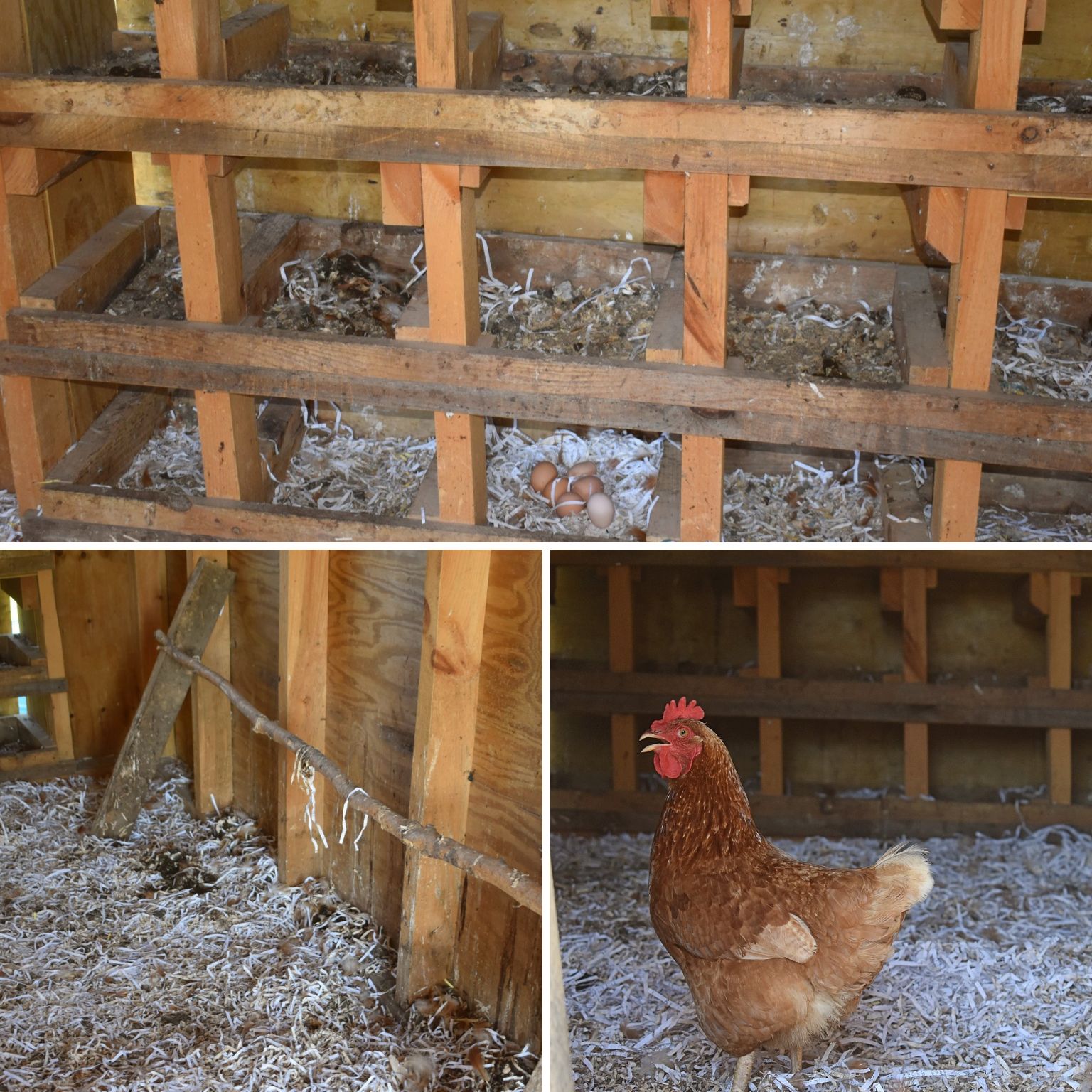
Maintaining a clean and dry coop is essential to the health and wellbeing of your chickens. Bedding should be changed regularly, ideally once a week, and the entire coop should be cleaned every month. Ammonia build up can be a problem in a chicken coop and should be mitigated as much as possible. Ventilation is also important to keep the coop dry and free of odors, so make sure there are enough windows and openings to allow for fresh air to circulate. Pay attention to any water leaks or damp spots in the coop and take action to keep the area dry. Finally, remember to provide plenty of nesting boxes to ensure your chickens have enough space and privacy when laying eggs.
Breeding for Maximum Egg Production
Selecting the Right Breeds: To maximize egg production, consider breeds that are known for their prolific laying such as Leghorns, Rhode Island Reds, and Orpingtons. These breeds have been bred for generations to have a high rate of egg production and should be the focus when selecting chickens for your flock.
Maintaining Healthy Chickens: Healthy chickens are the key to maximum egg production. The birds should be fed a balanced diet and have access to clean water and a comfortable environment. Ensure the coop is properly ventilated and that the birds have enough space to move around.
Monitoring Egg Production: It is important to keep track of egg production rates in order to identify any issues with the flock. A decrease in egg production can indicate health problems or a poor diet. Monitor the eggs daily and adjust the diet or environment if necessary.
Rotating Breeds: To ensure maximum egg production over time, consider rotating breeds. This will help prevent the birds from becoming too accustomed to their environment and will also ensure that the flock is healthy and productive.
Inbreeding: Inbreeding is a practice used to increase egg production and should be done carefully. It involves breeding two closely related chickens in order to produce offspring with desirable traits. This practice should be done with caution and only with the advice of an experienced breeder.
Frequently Asked Questions
What kind of housing is best for maximum egg production?
Chickens need secure and comfortable housing to ensure maximum egg production. The housing should provide enough space for the chickens to move around and fluff their feathers. It should be well-ventilated and have adequate protection from the elements, especially from predators. The housing should also have a secure area for the chickens to lay their eggs. When it comes to structure and size, the best housing for chickens is a coop with plenty of space for the birds to roam, as well as an attached run for them to exercise in. The coop should be large enough to accommodate the number of birds you have, and should have easy access to food and water.
What Should I Feed My Chickens to Ensure Maximum Egg Production?
Protein: High-quality protein sources are essential for chickens to produce eggs. Protein-rich foods such as fish meal, soybean meal, and alfalfa meal should be included in the diet.
Grains: Grains provide carbohydrates, which are necessary for energy. Whole grains such as wheat, oats, and barley are good sources of carbohydrates.
Vegetables: Vegetables provide vitamins and minerals, as well as fiber, which helps chickens digest their food. Dark leafy greens, carrots, sweet potatoes, and squash are all good sources of vitamins and minerals.
Fats and Oils: Fats and oils provide chickens with essential fatty acids, which help them produce eggs and maintain healthy skin and feathers. Good sources of fat and oil include flaxseed, canola oil, and fish oil.
Supplements: To ensure that chickens get all the essential nutrients they need, a vitamin and mineral supplement should be added to their diet. Calcium is especially important for egg production, so a calcium supplement should be included.
Other Foods: Chickens can also benefit from occasional treats, such as mealworms, cooked eggs, and kitchen scraps. These foods should be fed in moderation and should never replace the main diet.
How Often Should I Expect Eggs From My Chickens?
Chickens typically lay eggs once every 24-26 hours, with the peak of egg-laying occurring in the morning. Depending on the breed and age of your chicken, you should expect to get an egg every day or two. Some breeds lay more eggs than others, and some chickens may stop laying eggs in the winter months. To maximize egg production, keep your chickens healthy and provide them with a balanced diet, plenty of fresh water, and a comfortable nesting area.
Are there any health issues I should be aware of when raising chickens?
Parasites – Chickens are prone to various parasites, such as lice, mites, and worms. These parasites can cause health issues such as poor egg production, poor growth, and anemia. Regular deworming and mite treatments can help prevent these problems.
Diseases – Chickens are also susceptible to various diseases, including avian influenza, Newcastle disease, and Marek’s disease. Vaccinations and regular health checks can help protect your flock from these illnesses.
Injuries – Injuries, such as bumblefoot or egg binding, can occur in chickens. These need to be treated promptly to prevent further complications.
Nutrition – Poor nutrition can lead to a number of health issues, such as feather loss, reproductive issues, and decreased egg production. Providing a balanced, nutrient-rich diet is essential to ensure your chickens remain healthy.
Environmental Hazards – Chickens can be susceptible to environmental hazards, such as toxic plants, temperature extremes, and predators. Taking steps to protect your flock from these hazards is important for their health and wellbeing.
What are the Best Methods for Collecting Eggs?
Egg collection should be done twice daily, preferably in the morning and evening. To collect eggs, use a basket or egg carton, and wear gloves to avoid contamination. Check each nesting box to ensure all eggs are collected. Discard any cracked eggs and clean the nesting boxes with a weak bleach solution. To prevent damage to eggs, handle them gently and store them in a cool place.
Conclusion
Raising chickens for maximum egg production requires knowledge of the basics of chicken husbandry and understanding of how chickens lay eggs. With proper care and management, you can ensure that your chickens lay eggs at their maximum production rate. By providing a clean and comfortable environment, providing a balanced diet, and understanding the signs of health issues, you can ensure that your chickens lay eggs in abundance.
